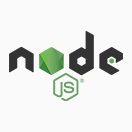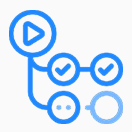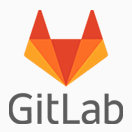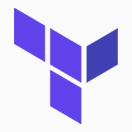Why do Healthcare Software Integrations
Optimized Interoperability
For systemized healthcare delivery, medical facilities can take advantage of AI-powered integration platforms that enable real-time data exchange between clinical, administrative, and financial systems.
Complaint Connectivity
As we do secure healthcare integrations, these solutions connect all systems while maintaining strict healthcare security standards and providing comprehensive audit trails for regulatory compliance.
Operational Automation
Healthcare software development with crucial integrations helps overcome paperwork headaches by automating information flow between EMR, billing, lab systems, patient portals, and other systems.
Unified Data Management
You get instant access to the entire patient’s information across all platforms through interconnected systems, instead of disparate data, which leads to poor care quality standards.
Faster Revenue Cycle
Management of cash flow, claim processing, and cut denials in healthcare is just one step away when you integrate telehealth platforms and EMR software with your billing systems.
Intuitive clinical Workflows
From patient data synchronization to care coordination, you can eliminate workflow bottlenecks across multiple healthcare applications after integrating your software with your healthcare systems.
Our Healthcare Software Integration Services
EMR/EHR Integration
To maintain secure patient data flow among different healthcare entities, our engineers do EMR/EHR integrations with your current systems to upgrade care coordination, make intelligent clinical decisions, and optimize patient engagements.
RCM Integration
We integrate revenue cycle management software, which connects billing, coding, collections, and reporting systems. This interconnectedness shields your financial data with clear revenue visibility by staying fully compliant with healthcare standards.
HMS Integration
Through HMS integration, we make bed management, staff scheduling, inventory tracking, and departmental coordination possible for all hospital departments and services to manage complex hospital operations through an all-in-one interconnected healthcare solution.
Telemedicine Software Integration
By collaborating with PureLogics, you can connect your healthcare systems with telemedicine software to provide virtual care to patients that allows you to handle video conferencing capabilities, prescription management, and clinical documentation.
Patient Engagement Software Integration
Through patient engagement platform integration, we connect mobile health apps, patient portals, and communication tools with existing clinical systems to enable automated appointment reminders, medication adherence tracking, and two-way patient-provider messaging.
Patient Portal Integration
With PureLogics, integrate your current workflows with patient portals by strengthening data security, and this practice also assists in scheduling appointments, smooth communications between patients and care providers, and educating patients.















Top Technologies That We Utilize
- Backend
- Frontend
- Databases
- Cloud & DevOps






















Frequently Asked Questions
What types of healthcare software integrations do you offer?
At PureLogics, we offer different types of healthcare software integrations:
- EMR/EHR Software
- Telemedicine Software
- Revenue Cycle Software
- Hospital Management Software
- Patient Engagement Software
- Practice Management Software
Which healthcare standards and protocols do you follow for integrations?
All these make healthcare solutions compliant and interoperable.
How do you maintain data consistency and accuracy across integrated healthcare systems?
To ensure data quality and reliability in integrated healthcare software, our data engineering team adheres to diverse data security practices, including:
- Data validation
- Data standardization
- Regular data audits
- Training of healthcare staff
Can you do integrations with legacy hospital systems and custom healthcare platforms?
Yes, PureLogics assists healthcare organizations (hospitals, clinics, and healthcare professionals) in integrating various systems, such as EHR, RIS, and PACS, with legacy hospital systems and custom healthcare platforms.
Before integration, we identify different integration challenges, such as data silos, security concerns, poor interoperability, and outdated software. Depending on these factors, we determine the integration approach, which may involve using middleware, APIs, or secure data exchanges via HL7 or FHIR.
How do you manage system downtime or errors during the software integration process?
Schedule your free 30 minutes call with one of our experts today.
We value long-term business relationships, and we’re guessing you do too.

